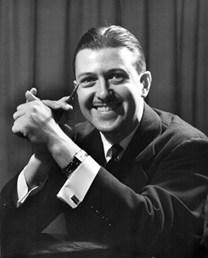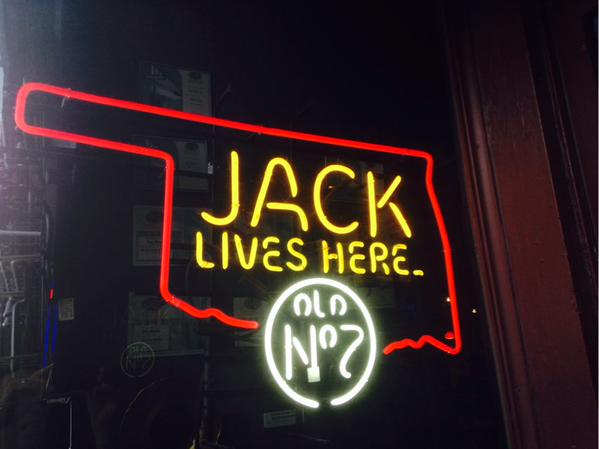The Original Jack Price
The day usually starts with a phone call. A humorous ringtone that announces the new day will be long and anything is possible. This time the call is from his 13 year-old daughter Annarose who informs her father that dance class is cancelled because the teacher is sick. Never mind. The day has started and before there is a chance to get dressed, the phone rings again. Jack Price, concert manager, knows this time the call is going to take a full hour. A general labor strike has been called just hours before one of his client is scheduled to perform. After reassuring the violinist that the presenter is obligated to reschedule the engagement and that the front office will take care of it, Jack finally finds his way to the shower and a hot bowl of oatmeal. He never makes it through the oatmeal.
“My job is part-time plumber, part-time psychologist, and when I am not fixing things, I am working to develop opportunities for concert artists. The concert business is much like a fox hunt except I am the fox looking to foil the hunters.” The hunters in this case is an entrenched classical music industry where relationship-building is the key to upward mobility and building unique relationships is more than just sending out thank you notes. It means Jack spends a lot of time on the phone and on the road to personally meet music directors and other decision-makers who engage artists for performances.
The mystique of Jack Price begins in the Desert Southwest as a concert pianist prodigy who performed with the Phoenix Symphony at age 11. Jack started life as Dickran Atamian, an Armenian name few could pronounce, and by his 19th birthday “Dickran Atamian” was a household name having won 1st prize at the 50th Anniversary Naumburg Competitions at Carnegie Hall. “In those days, the industry was different. Winning the Naumburg was a cultural event. The story was picked up in nearly 200 newspapers by the Associated Press. Artists who won major international competitions had followings. Today a competition winner is lucky to get local press. Winning the Naumburg was a watershed moment in my life; I couldn’t believe how quickly things changed for me." Atamian went on to perform a landmark Carnegie Hall recital where he gave the world premiere performance of a solo piano transcription of Stravinsky’s famed ballet score The Rite of Spring. He also signed an exclusive recording contract with RCA and recorded The Rite of Spring the following year. A tour of the Soviet Union followed.
“I was managed by Bill Judd of the Judd Concert Bureau. Bill was a long-time manager at CAMI [Columbia Artists Management Inc.] who worked with Arthur Judson, CAMI’s founder. Bill was old school and when he picked up the phone to book his clients, conductors listened. He knew everyone in the business and more importantly knew the stories and anecdotes that made dealing with tough presenters possible. My own training as a concert manager comes in part from what I learned from Bill.” But Bill Judd was at the tail end of his career and Atamian was one of his very last artists. The stress of 50 years in the business took a toll on Bill Judd and had reduced his involvement in Atamian’s career substantially. That ended up hurting Atamian’s career. After a couple years with CAMI and then with Harold Shaw, Atamian found himself fed up with major management. The dates dried up and prospects were teaching or something else.
“Price Rubin was born out of this period. The modern incarnation of the company began as a result of needing some kind of organization to resurrect my career, and what was missing from all the years I spent with major managers was a major effort.” Actually Price Rubin was gifted to Atamian. The original company was a public relations and marketing organization started in Hamilton, Ontario by the original Jack Price and his business partner Jerry Rubin. The original two owners managed all types of marketing campaigns and even took over the publicity for the 1974 Pierre Trudeau election. In 1984, the original Jack Price who was retiring knew of Atamian’s plight and suggested that he take over the company. The idea of assuming Jack’s identity was something Atamian thought of himself. “The whole notion of assuming a trade name to manage a career was novel. No one ever did that before. Promoters like Bill Graham changed their name but most artists have managers. There are a few big names who manage themselves, but the industry has always frowned on the practice. Decision-makers rarely talk directly with artists they do not know. After a stint at the University of Michigan as Artist-in-Residence, Dickran’s full transformation from artist to salesman to radio talk show host to dance lesson chauffeur would take a detour. The concert career that stymied in the early 80s was ready for a comeback. From 1996 until 2007 Atamian had booked over 100 orchestral dates, all procurred by Atamian’s alter-ego, Jack Price and accomplished what very few people in the classical music business could do: make a living concertizing. “Jack Price was created out of necessity. I created not only a trade name, but a trade personality as I had to be careful to keep a cover. Jack talked differently from Dickran(or Richie, as most refer to him). Jack was authoritative, personable, full of antidotes, but down to business when necessary. Dickran was boyish, fun-loving, always cracking a joke, and very much a L’enfant terrible.”
The Clark Kent/Superman lifestyle proved a challenge to keep up. “Conductors who would speak to me as Jack a few hours before meeting me as Atamian at the airport couldn’t tell that the two persons were one-in-the-same. I really had to perfect the foil and there were times when Jack’s phone mannerisms would take over Atamian at a rehearsal. One day after a rehearsal the conductor who booked me came up and starting to have a conversation. He then just blurted out: ‘oh that reminds me I need to call your manager about your contract.’ He takes out his cell phone and starts to dial the company number right in front of me – which of course would ring to my cell phone that was on me. Fortunately my cell was turned off for the rehearsal.” A few conductors figured out that Price and Atamian were one and the same and most thought the idea was hilarious. Jack’s first clients as a manager were conductors who appreciated Jack’s intensity and near limitless knowledge of stories, scandals, "where the bodies are buried" and the personalities in the industry.
The prospect of managing conductors was different in the beginning. The company had few resources employing a couple of part-time office people who mainly handled marketing materials for music directorship searches. The company did not yet have a dedicated marketing team or direct marketing services. Jack spent most of the time working out podium trades for his clients and in the early days of the business conductors on the roster conducted in Mexico, Spain, Italy, Canada, and all throughout the US as a result of Podium Exchanges. “Atamian got concerts because he had a name, some connections, but more than anything he came calling with something tangible that conductors wanted: a guest conducting engagement. To get those trades, I had to make 100-150 calls a week to people in the industry trying to find out who was doing what and what they were looking for. In those travels I learned a great deal about the personalities who ran the Concert Music Industry, and their stories would turn in to anecdotes that I would come to rely on to develop relationships – just like Bill Judd did a generation earlier.”
In 2001 Jack Price stopped marketing Atamian. The aftermath of 9-11 and the birth of his second child Annarose prompted him to take a good long look at a career that required extensive traveling. “I wanted to raise my kids and going off to perform another Brahms D minor Concerto was no longer something that excited me. The music meant a lot to me but getting on an airplane after being stripped search was something I didn’t need any more. But I had built up a pretty significant brand with Atamian and bookings extended through 2006. In 2007 I stopped completely. I was done with concerts.” Jack Price was now on his own as his alter-ego had finally retired. The next challenge was to build Price Rubin into a major arts marketing company, something the original Jack Price had hoped for when he gave Atamian the business back in 1984.
I knew what artists needed most from a manager was exposure to the industry. Exposure is a critical factor in determining an artist’s future success and artists needed to connect to the very people who should know them and consider them for public performance. I had the luxury of worldwide publicity and a major recording contract in the late 70s and that was what created an immediate brand – one that attracted managers like Bill Judd. But had I had the kind of intense marketing that we offer our clients, I would have enjoyed a much more sustained career after winning the Naumburg. I really do believe that.“ "Artists today are at the disadvantage of having to develop much of their own connections. And many of their connections are not with the kinds of decision-makers who will engage them but relationships with other performers and teachers – the very people competing against them. When I was under management, managers didn’t develop careers; they profited from the existing brand that a competition or some other type of exposure could generate. I wanted to change that, and the first step was to deliver a direct marketing program where established and promising concert artists were represented to a targeted segment of the industry while at the same time giving them detailed reports on exactly what Price Rubin does for them.”
In July of 2013 the company released PRPRadioOne, with its flagship program The Jack Price Radio Show, a program featuring Jack interviewing a variety of different guests from emerging artists to major decision-makers to Academy-Award winning composers and producers. Since its start in July 2013 Jack has interviewed over 400 people and the show today is now heard in 61 countries. “The show is about the guest and what makes them special. It is a chance for artists, presenters and decision-makers to reveal something unique about themselves that a written bio or a website could never disclose. It is a time-slot for the guest to connect with a sympathetic audience. It is also a chance for the artists and music administrators to be on the same platform. Decision-makers hear the performers speaking, not just playing! Often we take a trip down memory lane or talk about their future plans or opinions on a variety of different subjects. The internet or social media will never replace the need for people to talk to each other and that is what my radio show does.” Jack Price says his show is the perfect complement to his role as a concert manager as it gives him a needed respite during the day from his work as a plumber/psychologist/all-purpose handyman.
What is next for Jack Price and Price Rubin & Partners? He says the future holds many possibilities. “We are fundamentally the same company that the original Jack Price handed to me when he retired. We are a marketing and public relations company, and our job is to connect with people who engage other people. We are looking at a number of options, but regardless of our direction, the company will retain its small-company, highly-personalized roots. “


